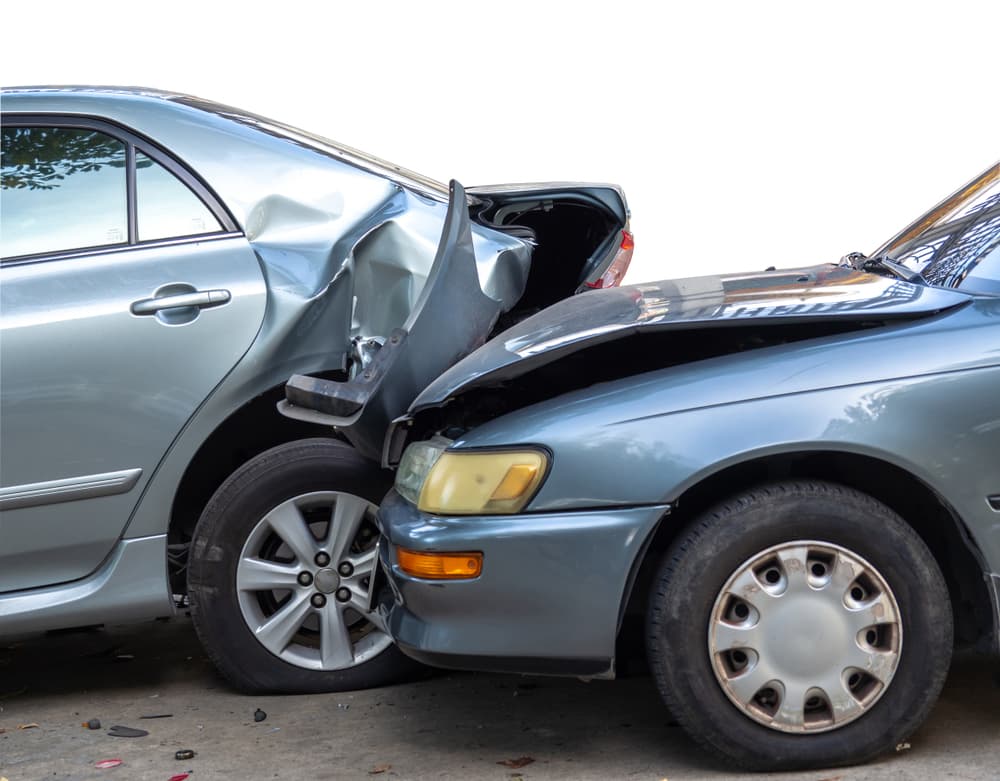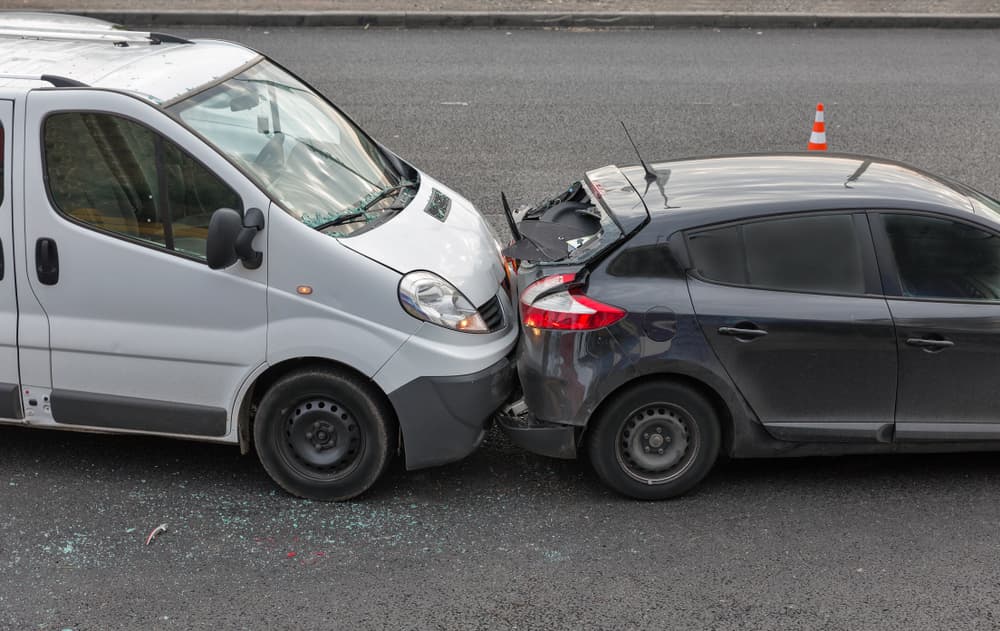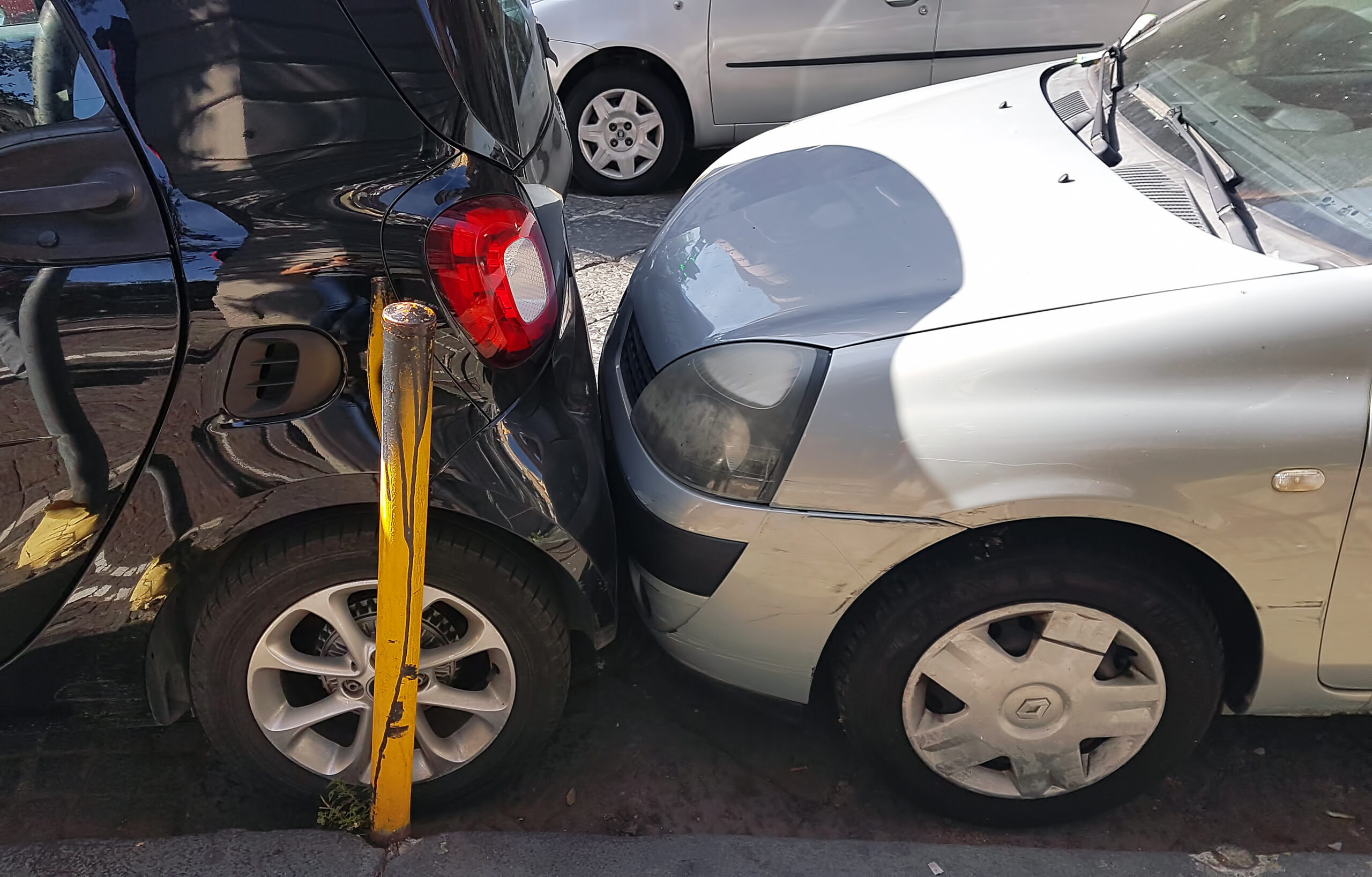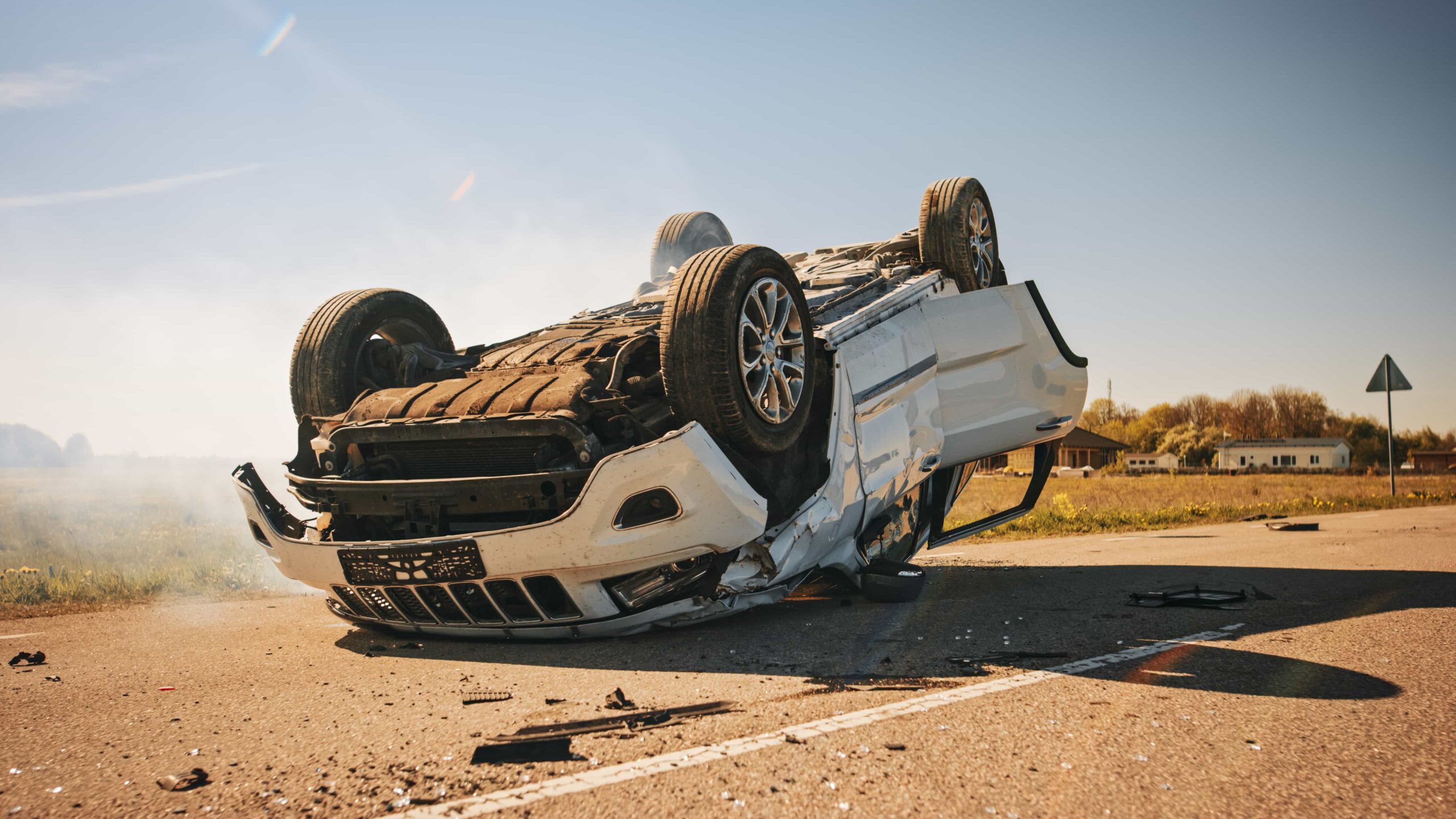Car accidents frequently lead to debilitating injuries that result in ongoing pain, suffering, and inconvenience. In most cases, the at-fault driver's insurance company is responsible for paying an injured accident victim's medical bills. However, if the at-fault driver is uninsured or underinsured, the accident victim may need to turn to their own insurance company for compensation.
Dealing with insurance companies is often difficult, especially without effective legal representation. An experienced Chicago car accident lawyer can handle all communications with the insurance company, negotiate on your behalf, and pursue the financial recovery you deserve. Moreover, if the insurance company does not take your car accident case seriously, your lawyer can file a lawsuit in court and litigate your case to an efficient resolution.
Schedule a Free Initial Consultation Today!
Why do Car Crashes Happen?

Car accidents often result from a myriad of factors, and the actions of other drivers play a significant role in contributing to these unfortunate events. One common scenario involves drivers who engage in distracted driving. With the ubiquity of smartphones, tablets, and similar electronic devices, drivers may turn their attention away from the road by texting, using apps, or even adjusting the car stereo system. However, this common distraction often compromises their ability to react swiftly to changes in traffic conditions, leading to collisions.
Reckless driving is another prominent factor in causing car accidents. Some drivers exhibit aggressive behaviors such as speeding, tailgating, or weaving in and out of traffic lanes. These actions increase the risk of accidents and create a hostile driving environment. Aggressive driving may escalate motorist tensions, further elevating the likelihood of collisions.
Inadequate vehicle maintenance is another way that drivers can inadvertently cause accidents. Vehicles with worn-out brakes, malfunctioning lights, or other mechanical issues are more prone to collisions. Brake failures or sudden breakdowns on the road can also catch other drivers off guard, resulting in accidents that might have been preventable with proper vehicle maintenance.
Failing to adhere to traffic signals and signs is another common contributor to car accidents. Disregarding red lights, yield signs, and stop signs – or failing to yield the right-of-way to another vehicle or pedestrian at the proper time can result in intersection collisions or side-impact crashes. Such infractions often lead to severe injuries, as these accidents happen faster.
Car accidents often stem from the actions and choices of other drivers on the road. Whether it's distracted driving, reckless behavior, disregard for traffic signals, or inadequate vehicle maintenance, the dynamics of traffic interactions are complex, and a combination of these factors can result in unfortunate collisions. Vigilance, adhering to prevailing traffic laws, and responsible driving are crucial elements in mitigating other drivers' risks on the road.
Types of Car Accidents that Happen when Other Drivers Are Negligent
Car accidents stemming from another driver's negligence can take various forms, presenting unique risks and potential injuries. Negligence on the road can manifest in different ways, leading to diverse types of accidents, including:
- Distracted Driving Accidents – Negligence related to distracted driving, such as texting or using a smartphone while driving, can lead to various types of accidents. These may include rear-end collisions, sideswipes, or running off the road.
- Head-On Collisions – Head-on collisions often occur when a driver crosses into oncoming traffic lanes due to distractions, alcohol impairment, or other forms of negligence. These accidents can result in severe injuries and fatalities.
- Speed-related Accidents – Driving at excessive speeds is a form of negligence that increases the severity of traffic accidents. Specifically, these accidents can involve another driver's loss of control, inability to stop in time, and an increased risk of collisions.
- Rear-End Collisions – A rear-end collision is one of the most common types of accidents resulting from negligence. This often occurs when a driver speeds, fails to maintain a safe following distance or becomes intoxicated or distracted while behind the wheel.
- Traffic Intersection Accidents – Negligence at traffic intersections can lead to T-bone collisions or side-impact crashes. Failing to yield the right-of-way to others, running red lights, or disregarding traffic signs are common negligence that often contribute to these accidents.
- Failure to Yield Accidents – Negligence in yielding the right-of-way can result in traffic accidents, especially at intersections or merging lanes. Failure to yield can lead to side-impact collisions or collisions with pedestrians and cyclists.
- Making Unsafe Lane Changes – Drivers who fail to check mirrors or blind spots – or fail to use turn signals – may cause accidents due to unsafe lane changes. These accidents often result in sideswipes or collisions with adjacent vehicles.
- Drunk Driving Accidents – Driving while under the influence of alcohol or drugs is a severe form of negligence that can lead to various types of accidents. Drunk or drugged drivers may exhibit erratic behavior, delayed reactions, impaired muscular coordination, and poor judgment, increasing the risk of collisions.
Identifying the specific type of accident resulting from another driver's negligence is crucial for understanding the dynamics of the incident. It also plays a significant role in determining liability and pursuing compensation for injuries and damages incurred due to others' negligent actions on the road.
Injuries in a Car Accident
Car accidents can cause many different injuries, depending upon factors like the use of seat belts, collision speed, and the type of accident that occurs.
- Fractures and broken bones are especially common in car accidents, especially when there is significant force involved. The force exerted on the accident victim's body during a collision can cause bones to break or fracture. Common fractures include broken ribs, legs, arms, and facial bones.
- Soft tissue injuries encompass a range of injuries to muscles, tendons, and ligaments and can include contusions, sprains, and strains. These injuries often result from the sheer force of a collision and can lead to ongoing pain, swelling, and a restricted range of motion.
- Whiplash is another prevalent injury, particularly in rear-end crashes. The sudden jolt of impact causes the accident victim's head to whip forward and then backward rapidly, straining the ligaments and neck muscles.
- Back injuries are common in car accidents, affecting the spine, discs, and nerves. Herniated discs, spinal fractures, and strains can cause persistent pain and may require extensive medical care and ongoing rehabilitation.
- Head injuries, including concussions and traumatic brain injuries (TBIs), can occur when a person's head makes contact with the steering wheel, headrest, dashboard, window, or other hard surfaces inside the vehicle. Even with the use of airbags and seat belts, head injuries remain a serious concern in car accidents.
- Psychological injuries, such as post-traumatic stress disorder (PTSD), can result from the emotional trauma of a car accident. Witnessing or experiencing a traumatic event on the road can lead to frequent depression, anxiety, and other mental health issues.
- Chest injuries may result from the force of a collision, such as when the chest hits the steering wheel or dashboard. Rib fractures and internal injuries to organs like the lungs and heart can also occur, leading to complications and long-term health problems.
It's important to note that the severity and type of injuries may vary widely based on the accident circumstances. Seeking prompt medical attention after a car crash is crucial, even if the injuries initially seem minor. An experienced car accident lawyer can begin taking the necessary legal steps in your case. At the same time, you attend doctor visits and obtain the medical treatment you need to fully recover.
Types of Medical Expenses You May Have after a Car Crash
After a car crash, individuals often incur various medical expenses for treating injuries sustained in the accident. These expenses can encompass a range of medical services and may vary based on the severity of injuries and individual circumstances.
Emergency medical services are among the immediate medical expenses following a car crash. This includes ambulance transportation, emergency room care, and initial medical assessments to address urgent health concerns. The costs associated with emergency services are crucial components of medical expenses.
Diagnostic tests and imaging, such as X-rays, CT scans, and MRIs, are also common after a car crash. These tests help healthcare professionals assess the extent of injuries, identify fractures or internal injuries, and develop an appropriate treatment plan. The expenses related to these diagnostic procedures contribute to the overall medical costs.
Medical consultations and visits to healthcare providers are ongoing expenses incurred to assess and treat injuries. Whether it's primary care physicians, specialists, or rehabilitation professionals, each visit contributes to the cumulative medical expenses resulting from the car accident.
Moreover, prescription medications are often necessary to manage pain, inflammation, or other symptoms associated with injuries sustained in a car crash. The costs of prescribed medications can add up, particularly if there is a need for long-term or specialized drug regimens.
Physical therapy and rehabilitation services may also be necessary for individuals recovering from car crash injuries. These services aim to restore mobility, functionality, and overall well-being. The expenses associated with physical therapy sessions and rehabilitation contribute significantly to the accident victim's overall medical costs.
In some cases, individuals may require surgical procedures to address injuries sustained in their car accident. Surgical expenses, including surgeon fees, anesthesia costs, and facility charges, can constitute a substantial portion of the overall medical costs.
Follow-up medical care and ongoing treatment for chronic conditions or lingering effects of injuries also contribute to the accident victim's long-term medical expenses. This may involve additional consultations, therapies, or medical interventions to address the lasting effects of the car crash.
Individuals involved in car accidents must keep detailed records of their medical expenses, including bills, receipts, and invoices. These documents are crucial when seeking compensation through insurance claims or litigation, ensuring that the accident victim receives reimbursement for all related past and anticipated medical costs.
Receiving Compensation for Your Medical Expenses
Following a car crash that a negligent driver caused, the question of who pays for related medical expenses is a crucial concern for the injured accident victim. Several avenues may be available to cover these expenses, including:

- Personal Injury Protection (PIP) – In some states, Personal Injury Protection (PIP) coverage is mandatory as part of auto insurance policies. PIP covers medical expenses for the policyholder, regardless of fault in the accident. It can also extend to passengers and pedestrians involved in the collision.
- Health Insurance – If you have health insurance, it can cover medical expenses resulting from a car crash. Health insurance policies typically cover hospital visits, surgeries, medications, and other necessary treatments. Coordination between auto and health insurance may be necessary to ensure maximum coverage.
- MedPay Coverage – Policyholders can include Medical Payments (MedPay) coverage as an optional add-on in their auto insurance policy. MedPay specifically covers medical expenses related to injuries sustained in a car accident, regardless of fault. This coverage may also cover immediate medical needs, such as emergency room visits and ambulance fees.
- At-Fault Driver's Liability Insurance – The at-fault driver's liability insurance is a primary source for covering the accident victim's medical expenses. Liability insurance is supposed to compensate victims for their related medical bills, property damage, and other losses resulting from the negligent actions of the insured driver.
- Uninsured/Underinsured Motorist Coverage – If the at-fault motorist is uninsured or underinsured, then the accident victim's own Uninsured/Underinsured Motorist (UM/UIM) coverage may come into play. This coverage helps cover medical expenses and other damages when the at-fault party lacks sufficient insurance coverage.
- Out-of-Pocket Payments – In cases where insurance coverage is insufficient or unavailable, individuals may need to cover medical expenses out of pocket. However, this option is often a last resort, and pursuing compensation through insurance claims or legal action is typically preferable.
It's essential for individuals involved in car accidents to promptly notify their insurance company and seek legal advice to understand the available options for covering their medical expenses. An experienced car accident attorney can guide you through the complexities of your insurance claim and pursue fair compensation for the medical costs incurred due to another driver's negligence.
Speak with a Car Accident Lawyer in Your Jurisdiction Right Away
If you suffered injuries in a recent car accident, a knowledgeable Chicago personal injury attorney in your area will pursue prompt reimbursement for your accident-related medical expenses and compensation for your other accident-related losses. Your attorney will aggressively negotiate with the insurance company on your behalf or, if necessary, pursue litigation in court.



